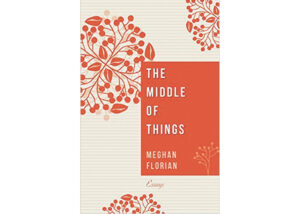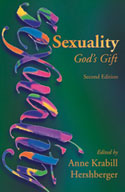Since we’re getting near the end of wedding season (which has been far less hectic for me this year – I was only invited to one wedding!), I thought I’d bring up this topic again. For me, it’s an endlessly fascinating topic, not only because I’m married, but also because within the past few years, I’ve moved from a context where most of my friends are married to my current context in Toronto, where most of my friends are single. It’s been an interesting shift to make.
In a recent article in Macleans magazine, Brian Bethune interviewed University of Toronto professor Michael Cobb about the way in which popular culture glorifies and is oriented toward marriage, despite the statistic that single people currently outnumber those who are married or otherwise involved in “coupledom.” Cobb talks about his own experience of being happily single, because he felt “a joy of being by myself and being able to cultivate all sorts of relationships and not have one person completely be the centre and focus of the world.” Cobb questions the idea that marriage always signifies a future of “happily ever after,” as depicted in so many novels, TV shows, and movies, despite the huge incidence of divorce in our society. He also wonders, conversely, why single people lack parallel narratives of fulfillment, stating: “There’s no history, there’s no language, just a lot of pity that’s foisted on us.”
As an aspiring theologian, I can’t help but compare this to the history of the Church, which has, for the most part, held the exact opposite values concerning marriage and singleness/celibacy! As per the apostle Paul’s teachings in 1 Corinthians 7, the influential fourth-century theologians Augustine and Jerome believed that celibacy or virginity was superior to marriage, though both were superior to all other sexual arrangements. Augustine and Jerome even wrote at length against the opinion of another thinker of the time, Jovinian, who argued that marriage and celibacy are equally holy paths! In Catholic Christianity, to this day, (at least officially) celibacy remains the highest ideal, allowing a person to be fully devoted to God (hence its requirement for priests, monks, and nuns), while marriage is good, but secondary, since a person must divide his or her attention between God and marriage/family. (I guess Cobb wasn’t thinking about the history of Christianity when he declared that there’s “no history” related to singleness! His comments are, in a sense, a secular echo of the Catholic position.)
The sixteenth-century Reformation, of course, reversed this hierarchy. Seeing the corruption of many priests and those belonging to religious orders who couldn’t or simply didn’t want to remain celibate, as well as the way cloistered monks and nuns withdrew from all engagement with the world, Martin Luther and other reformers made changes in their denominations to allow priests/pastors to marry. Interestingly, Luther, a former monk, married Katherine von Bora, a former nun, and became an enthusiastic promoter of marriage! He famously said, “There is no more lovely, friendly and charming relationship, communion or company than a good marriage.” We Anabaptist-Mennonites have tended to side with the Protestants in this matter, and are quick to declare that marriage and family are good, or even that they’re the way God wants us to live as Christians. I’m not sure, though, if we’ve fully worked out a sustained theology of marriage or of singleness (never mind a plan of what to do with 1 Corinthians 7), or if we’ve simply adopted and baptized cultural or ethnic values, either from the sixteenth-century or today! Considering, especially, all the changes which have occurred in the twentieth century concerning gender roles and understandings of the significance of marriage, I think it’s important for Mennonite theology to flesh this out.
Some of Cobb’s comments can be helpful here as they point out influential assumptions from pop culture. For instance, he sets out to debunk this idea that marriage is a perfect, fairy-tale type relationship which “saves” people from the one-dimensional drudgery of singleness, a sentiment I agree with. As Mennonites, along with other Christians, I think we need to admit that marriage is not the sum of our faith; it’s not marriage that saves us. Though it can be compatible with our faith, so can singleness, which has been and continues to be undervalued in our tradition, probably still in reaction to the Catholic tradition of idealizing celibacy. But there is a sense in which Cobb actually buys into these assumptions, seeing complete exclusivity and delusions of perfection as inextricable aspects of marriage, while I see them as avoidable, especially for marriages based on faith rather than pop culture. I’ll try to explain what I mean.
Cobb insightfully observes that “In couples there’s a lot of angst, a lot of anxiety once you get involved with anyone […,] a lot of anxiety about managing this thing that’s supposed to make you solid. Things are incredibly fragile all the time.” He also recounts being horrified at a wedding, when the minister spoke about the fights which the couple would have, the reality of illness and difficult times, even the reality of losing each other to death. But instead of recognizing these as realities of marriage, Cobb ends up assuming that couples have to ignore these vulnerabilities and hardships in order to get and stay married; in other words, the “for worse” and “till death do us part” aspects of marriage lead Cobb to suspect that marriage isn’t worth it! As I see it, these realities, and our willingness acknowledge them and still trust one another, are what make it possible for marriage to be part of our lives of faith. In the risks one takes in committing to loving another, in one’s vulnerability in sharing of oneself with another person, I think it’s possible to image God to one another. This is, after all, what the biblical idea of God and Israel or Christ and the Church as Bridegroom and Bride expresses. But, of course, this isn’t limited to the marriage relationship – it’s applicable to other family relationships, profound friendships, and even – especially – to communities of faith.
This brings me to Cobb’s statements about the exclusivity of marriage, the way it reduces one’s world to this one person. He explains, “Coupledom shrinks the world. […] You have fewer friends, you have fewer opportunities to go out in the world and explore and have all sorts of intimacies and associations and friendships and activities.” While this may be true for some, it’s certainly not an intrinsic aspect of marriage! In some ways, marriage actually broadens one’s “associations and friendships,” since one gains a family-in-law and one’s spouse’s friends/colleagues/church community become part of one’s life. Of course, there’s a balance to be maintained between time spent alone and time spent with others. Cobb himself describes a relationship he had where the two of them didn’t socialize much together, and rather focused on being “separate individuals,” which, he claims, “certainly made the breakup much easier.” But that’s just the thing: without time spent nurturing a marriage, it remains shaky and shallow, but if the marriage is expected to fulfill one’s every need, it’s carrying a load that’s too heavy for one relationship to bear alone. In other words, as I see it, Cobb is missing the distinction between fidelity and exclusivity; I don’t think being faithful to one’s spouse and having close friends, extended family, and community are mutually exclusive. In fact, these relationships can contribute to and strengthen one another, as reflected in communal words of affirmation at church weddings. Of course, Cobb’s warnings about exclusivity apply to these other relationships too, and are thus applicable to all of us, whether single or married (remember Luther’s concerns about the (single!) cloistered monks and nuns withdrawing from the world?).
So, I hope we all keep these things in mind: the risk and vulnerability of relationships, the inevitable conflicts that arise, the temptations to idealize certain relationships and to be exclusive. They’re realities for all of us, but they don’t make our calling to be in relationship with one another and with God any less worthwhile.





